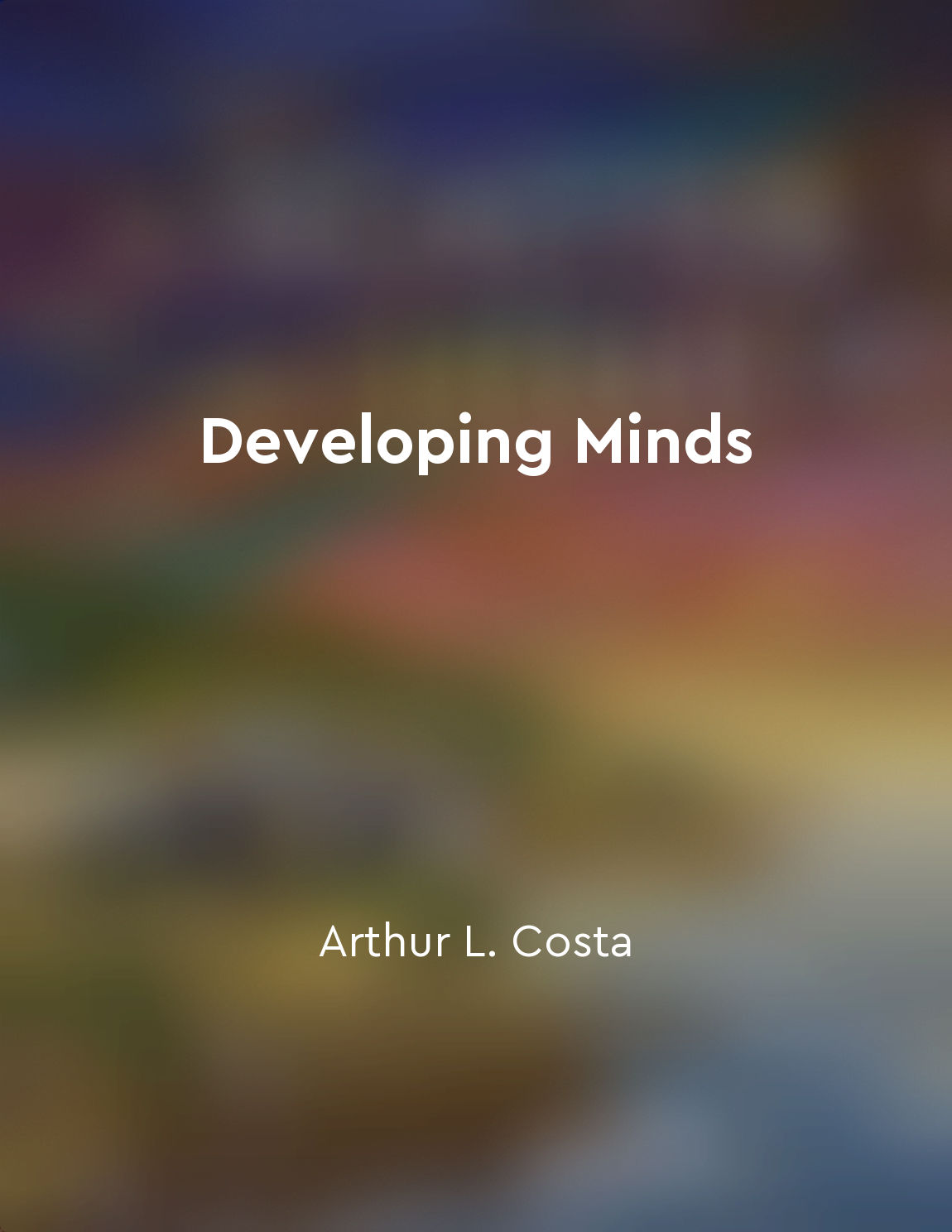Japanese teachers focus on problemsolving skills from "summary" of The Teaching Gap by James W. Stigler,James Hiebert
The teaching approach in Japan is distinct in its emphasis on developing problem-solving skills in students. Japanese teachers are known for their commitment to guiding students through complex problems and encouraging them to think critically and creatively. This focus on problem-solving is deeply ingrained in the Japanese education system, reflecting a cultural belief in the importance of resilience and perseverance in the face of challenges. When observing Japanese classrooms, one can see how teachers structure their lessons to engage students in solving problems. Rather than simply providing answers or instructions, teachers pose open-ended questions that require students to think deeply and apply their knowledge in novel ways. This approach encourages students to explore different solutions, test their hypotheses, and learn from their mistakes. Moreover, Japanese teachers foster a supportive learning environment where students feel comfortable taking risks and making mistakes. Instead of penalizing errors, teachers use them as opportunities for learning and growth. By focusing on the process of problem-solving rather than the final outcome, Japanese teachers help students develop a growth mindset and a willingness to persevere in the face of difficulties. In addition, Japanese teachers often use collaborative learning strategies to enhance students' problem-solving skills. Students work together in groups to tackle challenging problems, sharing ideas and perspectives to arrive at a collective solution. This collaborative approach not only fosters a sense of community and cooperation among students but also provides them with diverse perspectives and strategies for solving problems.- The emphasis on problem-solving in Japanese classrooms reflects a broader commitment to developing students' cognitive and social-emotional skills. By nurturing students' ability to think critically, work collaboratively, and persevere in the face of challenges, Japanese teachers prepare them not only for academic success but also for success in all aspects of life.
Similar Posts
Education is political
The relationship between education and politics is undeniable. Education is not neutral or objective; it is always intertwined ...

Foster a positive and respectful relationship
To build a strong connection with your child, it is essential to establish a positive and respectful relationship. This involve...
Encourage children to pursue their interests and passions
One of the most important things parents can do for their children is to support and nurture their interests and passions. When...
Fear of failure can hinder a child's learning
In many schools, we often see children who are afraid to make mistakes, afraid to fail. This fear of failure can become a hindr...
Practice mindfulness and relaxation techniques
One key strategy to help children manage stress and anxiety is to encourage them to practice mindfulness and relaxation techniq...

Build relationships to foster creativity
One of the key components of fostering creativity is building strong relationships with those around you. These relationships a...
Avoid power struggles by offering choices
When children feel like they have no control over their lives, they often resort to power struggles as a way to assert themselv...
Improving rational thinking
Improving rational thinking involves developing the ability to critically analyze information and make sound decisions based on...

Building strong relationships is important for mental growth
The connections we form with others play a crucial role in our cognitive development. These relationships provide us with the s...

Teach children to analyze information
When we talk about teaching children to analyze information, we are really talking about giving them the tools they need to mak...

